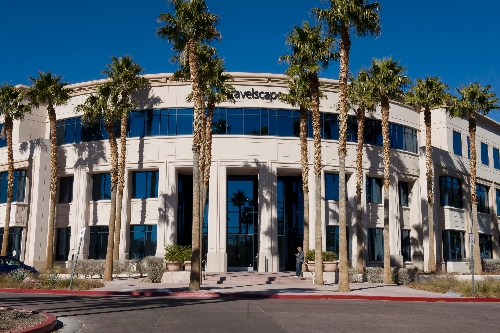Travelscape ordered to pay South Carolina
Travelscape, a Las Vegas-based online hotel bookings company, has been ordered to pay as much as $6.3 million in back tax revenue to South Carolina in a ruling that observers said is part of a larger push by cash-strapped states to grab money from Internet companies.
Observers warned that Travelscape's financial hit could be a sign of future rulings against online booking companies like Expedia, hotels.com and Orbitz.
"I would be concerned, very concerned, if I was an Internet company that went into a state and didn't collect tax revenue," said Matt Policastro, a local attorney with Lionel Sawyer & Collins.
Other observers agreed that the Travelscape ruling is another sign that online sales tax exemptions are likely nearing an end.
"I think this is going to be an issue for all the Internet travel companies as states look for revenue," said Jeff Daniels, an Arizona attorney who runs Fennemore Craig's national tax practice group. "And it could be a starting point where Congress will eventually weigh in.
"Here, these companies collect the entire fee from the customer, so the state or city can say, 'You owe the tax because you collected the entire bill.'"
More lawsuits are already in the works against online booking companies, Daniels said. He noted hotels.com's recent public disclosure that it had been named in more than 40 lawsuits involving allegations of taxes owed to other states and cities.
Vegas.com, a leading local online travel booker, could not be reached for comment Friday on the case's potential impact.
The South Carolina Supreme Court ruled Jan. 18 that Travelscape, which is owned by Expedia, had a sufficient presence in that state to be required to pay sales tax on the lodging the online company arranged.
The ruling was made even though Travelscape has no brick-and-mortar location in the state; Travelscape's frequent sales trips to South Carolina were found to be enough of a connection.
John Krieger, an Internet law attorney with the Las Vegas office of Lewis and Roca, said online businesses should take note of what Travelscape was ordered to pay.
"It will certainly be a harbinger of tax laws being enforced to reach the Internet," he said. "Up till now, it has been unusual, but as state governments get squeezed, they will look for revenue sources."
Travelscape was Bellevue, Wash.-based Expedia's first, and largest, acquisition. Expedia paid $89.75 million for Travelscape in March 2000, but Travelscape maintains its Nevada headquarters in Summerlin.
Expedia expressed disappointment with the ruling.
"Unfortunately, South Carolina is now reaching outside of its borders to tax services that are not performed in its state," the company said in a statement. "(The) decision is inconsistent with the growing body of court decisions finding that the services provided by the online travel companies are not subject to local taxes, including decisions by eight federal courts and numerous state courts."
Expedia also said "South Carolina has received millions of tax dollars" from Expedia since 2001.
Travelscape had entered contracts with 354 South Carolina hotels from 2001 to 2006, in which the hotels agreed to accept rates discounted from the rates offered the general public for online reservations. Travelscape then added various fees, according to court filings.
In its arguments before the South Carolina Supreme Court, Expedia had argued it did not actually "furnish" the hotel rooms, as is defined in that state's law. The court rejected that argument.
About 44 states have already banded together to push the Streamlined Sales and Use Tax Agreement, which allows the taxing of online sales regardless of the company's physical location So, it makes sense that states -- some of which are teetering near financial disaster -- are also pursuing the tax revenue on their own, Policastro said.
But forcing online businesses to comply with every local tax code could prove an impossible task for smaller companies, Daniels said.
"The problem is, if you are an Internet company, do you know how many employees it takes to keep up with every city and state tax law? The costs are substantial," he said.
Only the biggest players, such as Expedia, Orbitz and hotels.com, are likely to be able to survive in that environment, Daniels added.
"This is not a pro-business decision," he said, "unless you are a travel agent in the state of South Carolina."
Contact reporter Valerie Miller at
vmiller@lvbusinesspress.com
or 702-387-5286.






















